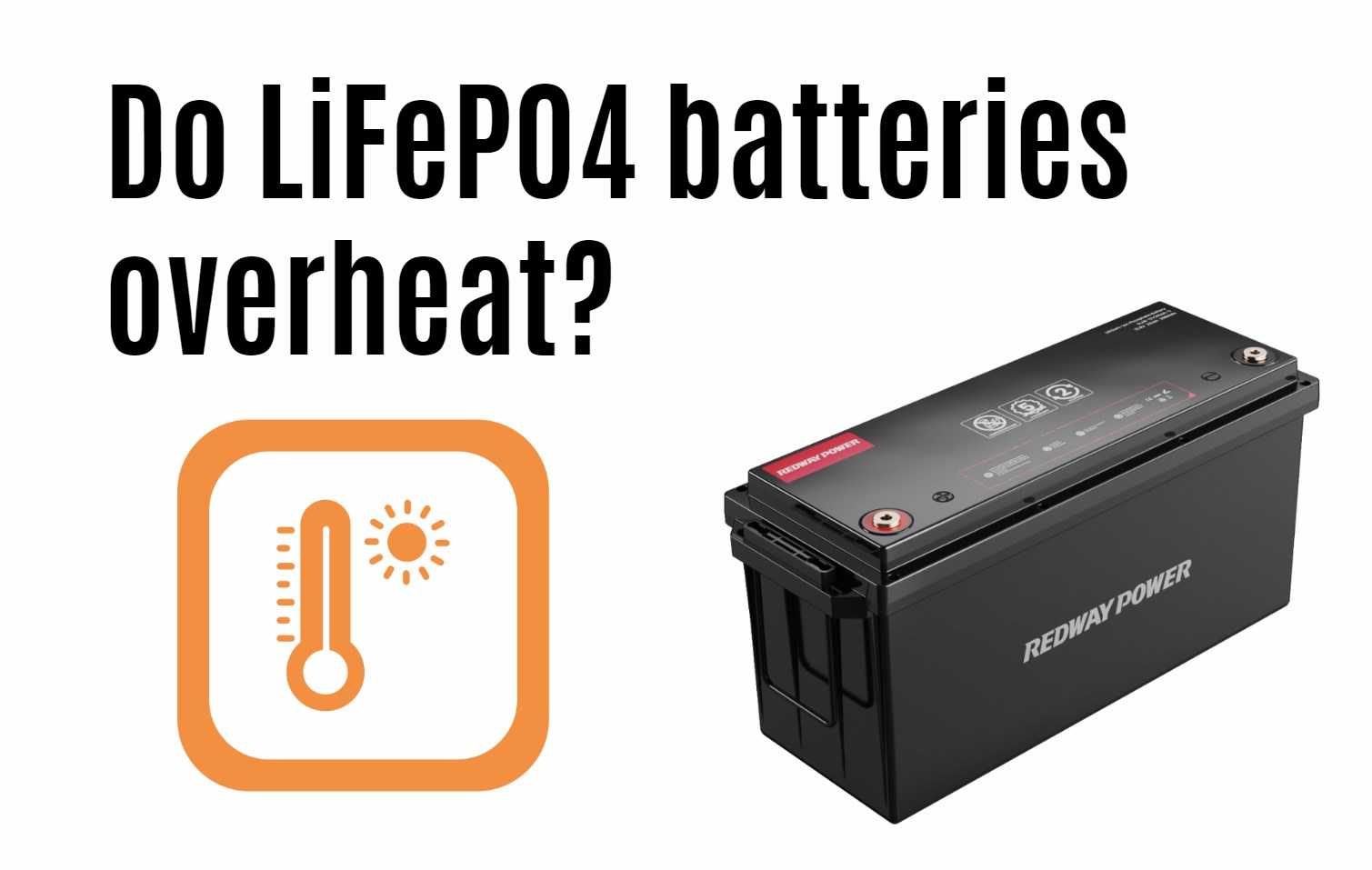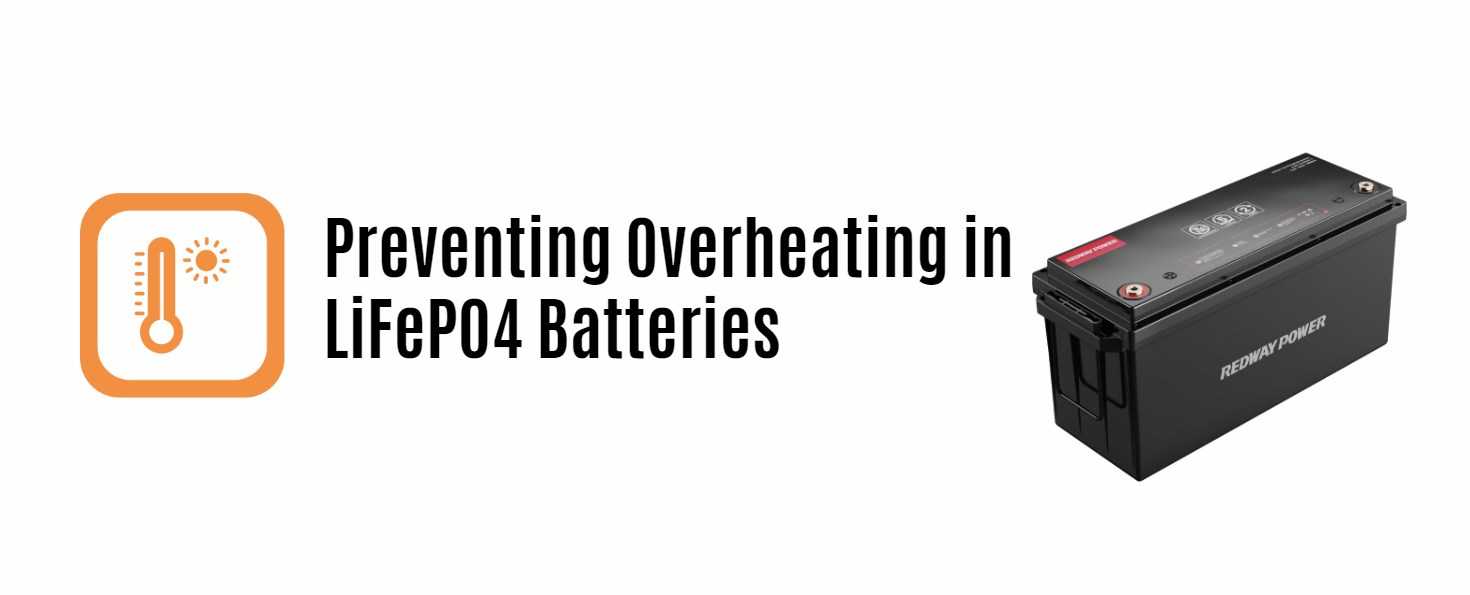Lithium Iron Phosphate (LiFePO4) batteries are increasingly popular due to their safety, longevity, and efficiency. However, concerns about overheating can arise, especially when using these batteries in high-performance applications such as electric vehicles and renewable energy systems. In this article, we will explore whether LiFePO4 batteries can overheat, the factors that contribute to overheating, and the best practices for preventing it.
1. Understanding LiFePO4 Battery Chemistry
1.1 What is a LiFePO4 Battery?
LiFePO4 batteries are a type of lithium-ion battery that uses lithium iron phosphate as the cathode material. This chemistry offers several advantages:
-
Safety: LiFePO4 batteries are less prone to thermal runaway compared to other lithium-ion chemistries.
-
Longevity: These batteries typically have a longer cycle life, often exceeding 2000 cycles.
-
Environmental Impact: The materials used are less toxic and more environmentally friendly.
1.2 Thermal Stability of LiFePO4 Batteries
One of the standout features of LiFePO4 batteries is their thermal stability:
- They can withstand higher temperatures without significant degradation.
- The risk of overheating is lower compared to other lithium-ion chemistries like Lithium Cobalt Oxide (LCO).
2. Factors Contributing to Overheating in Batteries
2.1 Charging Conditions
Improper charging practices can lead to overheating:
-
Overcharging: Charging beyond the recommended voltage can generate excessive heat.
-
High Charging Currents: Using a charger with a current that exceeds the battery’s specifications may also cause overheating.
2.2 Environmental Conditions
The operating environment significantly affects battery temperature:
-
High Ambient Temperatures: Operating in hot conditions can lead to increased internal temperatures.
-
Poor Ventilation: Insufficient airflow around the battery can trap heat, leading to overheating.
2.3 Internal Resistance
Internal resistance within the battery can generate heat during operation:
- As batteries age or if they are of lower quality, internal resistance may increase, leading to more heat generation during charging and discharging cycles.
3. Signs of Overheating in LiFePO4 Batteries
3.1 Physical Indicators
Be alert for physical signs that may indicate overheating:
-
Swelling or Bulging: A swollen battery casing is a clear sign of overheating or internal damage.
-
Discoloration: Changes in color on the battery surface may indicate excessive heat exposure.
3.2 Performance Issues
Overheating can lead to noticeable performance degradation:
- Reduced capacity and efficiency during operation.
- Increased self-discharge rates.
4. Preventing Overheating in LiFePO4 Batteries
4.1 Use Quality Chargers
Investing in high-quality chargers specifically designed for LiFePO4 batteries is essential:
-
Ensure chargers have built-in safety features such as over-voltage protection and temperature monitoring.
4.2 Monitor Temperature Regularly
Regular temperature checks can help prevent overheating:
-
Use thermal sensors or infrared thermometers to monitor battery temperature during operation and charging.
4.3 Ensure Proper Ventilation
Maintain adequate airflow around your battery system:
-
Avoid enclosing batteries in tight spaces without ventilation, especially during high-load applications.
4.4 Follow Manufacturer Guidelines
Always adhere to manufacturer specifications regarding charging and operating conditions:
- This ensures optimal performance and minimizes the risk of overheating.
5. Latest Developments in Battery Technology
Recent advancements in lithium battery technology focus on improving safety and efficiency features:
- Innovations such as smart battery management systems (BMS) allow users better monitoring capabilities.
- Research into solid-state batteries promises increased energy density and improved safety characteristics in future models.
6. Frequently Asked Questions (FAQs)
6.1 Can LiFePO4 batteries catch fire?
While they are much safer than other lithium-ion chemistries, any battery can pose a risk if improperly handled or charged beyond specifications.
6.2 What should I do if my battery overheats?
Immediately disconnect it from any power source and allow it to cool down in a safe area away from flammable materials.
6.3 How often should I check my battery’s temperature?
Regular checks are advisable, especially before long trips or extended periods of inactivity; ideally, check every few weeks.
7. Conclusion
In conclusion, while Lithium Iron Phosphate (LiFePO4) batteries are less prone to overheating compared to other lithium-ion chemistries, they are not immune to heat-related issues. By understanding the factors that contribute to overheating and implementing best practices for charging and maintenance, users can maximize their battery’s performance and lifespan while ensuring safety in various applications.At Redway Battery, we specialize in manufacturing high-quality Lithium LiFePO4 solutions tailored to meet diverse customer needs worldwide. With our extensive experience in this field, we provide custom solutions quickly for wholesale and OEM customers. For a quick quote or more information about our products, please contact us today!





